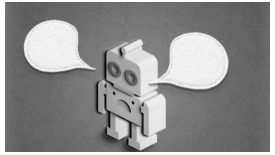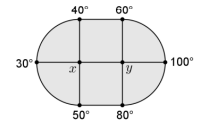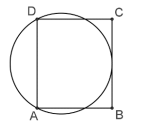Questões de Concurso
Comentadas para analista - tecnologia
Foram encontradas 179 questões
Resolva questões gratuitamente!
Junte-se a mais de 4 milhões de concurseiros!
Read Text I and answer the question.
Text I
Why We're Obsessed With the Mind-Blowing ChatGPT AI Chatbot
Stephen Shankland
Feb. 19, 2023 5:00 a.m. PT

This artificial intelligence bot can answer questions, write essays, summarize documents and write software. But deep down, it doesn't know what's true.
Even if you aren't into artificial intelligence, it's time to pay attention to ChatGPT, because this one is a big deal.
The tool, from a power player in artificial intelligence called OpenAI, lets you type natural-language prompts. ChatGPT then offers conversational, if somewhat stilted, responses. The bot remembers the thread of your dialogue, using previous questions and answers to inform its next responses. It derives its answers from huge volumes of information on the internet.
ChatGPT is a big deal. The tool seems pretty knowledgeable in areas where there's good training data for it to learn from. It's not omniscient or smart enough to replace all humans yet, but it can be creative, and its answers can sound downright authoritative. A few days after its launch, more than a million people were trying out ChatGPT.
But be careful, OpenAI warns. ChatGPT has all kinds of potential pitfalls, some easy to spot and some more subtle.
“It's a mistake to be relying on it for anything important right now,” OpenAI Chief Executive Sam Altman tweeted. “We have lots of work to do on robustness and truthfulness.” […]
What is ChatGPT?
ChatGPT is an AI chatbot system that OpenAI released in November to show off and test what a very large, powerful AI system can accomplish. You can ask it countless questions and often will get an answer that's useful.
For example, you can ask it encyclopedia questions like, “Explain Newton's laws of motion.” You can tell it, "Write me a poem," and when it does, say, "Now make it more exciting." You ask it to write a computer program that'll show you all the different ways you can arrange the letters of a word.
Here's the catch: ChatGPT doesn't exactly know anything. It's an AI that's trained to recognize patterns in vast swaths of text harvested from the internet, then further trained with human assistance to deliver more useful, better dialog. The answers you get may sound plausible and even authoritative, but they might well be entirely wrong, as OpenAI warns.
Adapted from: https://www.cnet.com/tech/computing/why-were-all-obsessedwith-the-mind-blowing-chatgpt-ai-chatbot/
Read Text I and answer the question.
Text I
Why We're Obsessed With the Mind-Blowing ChatGPT AI Chatbot
Stephen Shankland
Feb. 19, 2023 5:00 a.m. PT

This artificial intelligence bot can answer questions, write essays, summarize documents and write software. But deep down, it doesn't know what's true.
Even if you aren't into artificial intelligence, it's time to pay attention to ChatGPT, because this one is a big deal.
The tool, from a power player in artificial intelligence called OpenAI, lets you type natural-language prompts. ChatGPT then offers conversational, if somewhat stilted, responses. The bot remembers the thread of your dialogue, using previous questions and answers to inform its next responses. It derives its answers from huge volumes of information on the internet.
ChatGPT is a big deal. The tool seems pretty knowledgeable in areas where there's good training data for it to learn from. It's not omniscient or smart enough to replace all humans yet, but it can be creative, and its answers can sound downright authoritative. A few days after its launch, more than a million people were trying out ChatGPT.
But be careful, OpenAI warns. ChatGPT has all kinds of potential pitfalls, some easy to spot and some more subtle.
“It's a mistake to be relying on it for anything important right now,” OpenAI Chief Executive Sam Altman tweeted. “We have lots of work to do on robustness and truthfulness.” […]
What is ChatGPT?
ChatGPT is an AI chatbot system that OpenAI released in November to show off and test what a very large, powerful AI system can accomplish. You can ask it countless questions and often will get an answer that's useful.
For example, you can ask it encyclopedia questions like, “Explain Newton's laws of motion.” You can tell it, "Write me a poem," and when it does, say, "Now make it more exciting." You ask it to write a computer program that'll show you all the different ways you can arrange the letters of a word.
Here's the catch: ChatGPT doesn't exactly know anything. It's an AI that's trained to recognize patterns in vast swaths of text harvested from the internet, then further trained with human assistance to deliver more useful, better dialog. The answers you get may sound plausible and even authoritative, but they might well be entirely wrong, as OpenAI warns.
Adapted from: https://www.cnet.com/tech/computing/why-were-all-obsessedwith-the-mind-blowing-chatgpt-ai-chatbot/
Read Text I and answer the question.
Text I
Why We're Obsessed With the Mind-Blowing ChatGPT AI Chatbot
Stephen Shankland
Feb. 19, 2023 5:00 a.m. PT

This artificial intelligence bot can answer questions, write essays, summarize documents and write software. But deep down, it doesn't know what's true.
Even if you aren't into artificial intelligence, it's time to pay attention to ChatGPT, because this one is a big deal.
The tool, from a power player in artificial intelligence called OpenAI, lets you type natural-language prompts. ChatGPT then offers conversational, if somewhat stilted, responses. The bot remembers the thread of your dialogue, using previous questions and answers to inform its next responses. It derives its answers from huge volumes of information on the internet.
ChatGPT is a big deal. The tool seems pretty knowledgeable in areas where there's good training data for it to learn from. It's not omniscient or smart enough to replace all humans yet, but it can be creative, and its answers can sound downright authoritative. A few days after its launch, more than a million people were trying out ChatGPT.
But be careful, OpenAI warns. ChatGPT has all kinds of potential pitfalls, some easy to spot and some more subtle.
“It's a mistake to be relying on it for anything important right now,” OpenAI Chief Executive Sam Altman tweeted. “We have lots of work to do on robustness and truthfulness.” […]
What is ChatGPT?
ChatGPT is an AI chatbot system that OpenAI released in November to show off and test what a very large, powerful AI system can accomplish. You can ask it countless questions and often will get an answer that's useful.
For example, you can ask it encyclopedia questions like, “Explain Newton's laws of motion.” You can tell it, "Write me a poem," and when it does, say, "Now make it more exciting." You ask it to write a computer program that'll show you all the different ways you can arrange the letters of a word.
Here's the catch: ChatGPT doesn't exactly know anything. It's an AI that's trained to recognize patterns in vast swaths of text harvested from the internet, then further trained with human assistance to deliver more useful, better dialog. The answers you get may sound plausible and even authoritative, but they might well be entirely wrong, as OpenAI warns.
Adapted from: https://www.cnet.com/tech/computing/why-were-all-obsessedwith-the-mind-blowing-chatgpt-ai-chatbot/
Read Text I and answer the question.
Text I
Why We're Obsessed With the Mind-Blowing ChatGPT AI Chatbot
Stephen Shankland
Feb. 19, 2023 5:00 a.m. PT

This artificial intelligence bot can answer questions, write essays, summarize documents and write software. But deep down, it doesn't know what's true.
Even if you aren't into artificial intelligence, it's time to pay attention to ChatGPT, because this one is a big deal.
The tool, from a power player in artificial intelligence called OpenAI, lets you type natural-language prompts. ChatGPT then offers conversational, if somewhat stilted, responses. The bot remembers the thread of your dialogue, using previous questions and answers to inform its next responses. It derives its answers from huge volumes of information on the internet.
ChatGPT is a big deal. The tool seems pretty knowledgeable in areas where there's good training data for it to learn from. It's not omniscient or smart enough to replace all humans yet, but it can be creative, and its answers can sound downright authoritative. A few days after its launch, more than a million people were trying out ChatGPT.
But be careful, OpenAI warns. ChatGPT has all kinds of potential pitfalls, some easy to spot and some more subtle.
“It's a mistake to be relying on it for anything important right now,” OpenAI Chief Executive Sam Altman tweeted. “We have lots of work to do on robustness and truthfulness.” […]
What is ChatGPT?
ChatGPT is an AI chatbot system that OpenAI released in November to show off and test what a very large, powerful AI system can accomplish. You can ask it countless questions and often will get an answer that's useful.
For example, you can ask it encyclopedia questions like, “Explain Newton's laws of motion.” You can tell it, "Write me a poem," and when it does, say, "Now make it more exciting." You ask it to write a computer program that'll show you all the different ways you can arrange the letters of a word.
Here's the catch: ChatGPT doesn't exactly know anything. It's an AI that's trained to recognize patterns in vast swaths of text harvested from the internet, then further trained with human assistance to deliver more useful, better dialog. The answers you get may sound plausible and even authoritative, but they might well be entirely wrong, as OpenAI warns.
Adapted from: https://www.cnet.com/tech/computing/why-were-all-obsessedwith-the-mind-blowing-chatgpt-ai-chatbot/
Read Text I and answer the question.
Text I
Why We're Obsessed With the Mind-Blowing ChatGPT AI Chatbot
Stephen Shankland
Feb. 19, 2023 5:00 a.m. PT

This artificial intelligence bot can answer questions, write essays, summarize documents and write software. But deep down, it doesn't know what's true.
Even if you aren't into artificial intelligence, it's time to pay attention to ChatGPT, because this one is a big deal.
The tool, from a power player in artificial intelligence called OpenAI, lets you type natural-language prompts. ChatGPT then offers conversational, if somewhat stilted, responses. The bot remembers the thread of your dialogue, using previous questions and answers to inform its next responses. It derives its answers from huge volumes of information on the internet.
ChatGPT is a big deal. The tool seems pretty knowledgeable in areas where there's good training data for it to learn from. It's not omniscient or smart enough to replace all humans yet, but it can be creative, and its answers can sound downright authoritative. A few days after its launch, more than a million people were trying out ChatGPT.
But be careful, OpenAI warns. ChatGPT has all kinds of potential pitfalls, some easy to spot and some more subtle.
“It's a mistake to be relying on it for anything important right now,” OpenAI Chief Executive Sam Altman tweeted. “We have lots of work to do on robustness and truthfulness.” […]
What is ChatGPT?
ChatGPT is an AI chatbot system that OpenAI released in November to show off and test what a very large, powerful AI system can accomplish. You can ask it countless questions and often will get an answer that's useful.
For example, you can ask it encyclopedia questions like, “Explain Newton's laws of motion.” You can tell it, "Write me a poem," and when it does, say, "Now make it more exciting." You ask it to write a computer program that'll show you all the different ways you can arrange the letters of a word.
Here's the catch: ChatGPT doesn't exactly know anything. It's an AI that's trained to recognize patterns in vast swaths of text harvested from the internet, then further trained with human assistance to deliver more useful, better dialog. The answers you get may sound plausible and even authoritative, but they might well be entirely wrong, as OpenAI warns.
Adapted from: https://www.cnet.com/tech/computing/why-were-all-obsessedwith-the-mind-blowing-chatgpt-ai-chatbot/
Read Text I and answer the question.
Text I
Why We're Obsessed With the Mind-Blowing ChatGPT AI Chatbot
Stephen Shankland
Feb. 19, 2023 5:00 a.m. PT

This artificial intelligence bot can answer questions, write essays, summarize documents and write software. But deep down, it doesn't know what's true.
Even if you aren't into artificial intelligence, it's time to pay attention to ChatGPT, because this one is a big deal.
The tool, from a power player in artificial intelligence called OpenAI, lets you type natural-language prompts. ChatGPT then offers conversational, if somewhat stilted, responses. The bot remembers the thread of your dialogue, using previous questions and answers to inform its next responses. It derives its answers from huge volumes of information on the internet.
ChatGPT is a big deal. The tool seems pretty knowledgeable in areas where there's good training data for it to learn from. It's not omniscient or smart enough to replace all humans yet, but it can be creative, and its answers can sound downright authoritative. A few days after its launch, more than a million people were trying out ChatGPT.
But be careful, OpenAI warns. ChatGPT has all kinds of potential pitfalls, some easy to spot and some more subtle.
“It's a mistake to be relying on it for anything important right now,” OpenAI Chief Executive Sam Altman tweeted. “We have lots of work to do on robustness and truthfulness.” […]
What is ChatGPT?
ChatGPT is an AI chatbot system that OpenAI released in November to show off and test what a very large, powerful AI system can accomplish. You can ask it countless questions and often will get an answer that's useful.
For example, you can ask it encyclopedia questions like, “Explain Newton's laws of motion.” You can tell it, "Write me a poem," and when it does, say, "Now make it more exciting." You ask it to write a computer program that'll show you all the different ways you can arrange the letters of a word.
Here's the catch: ChatGPT doesn't exactly know anything. It's an AI that's trained to recognize patterns in vast swaths of text harvested from the internet, then further trained with human assistance to deliver more useful, better dialog. The answers you get may sound plausible and even authoritative, but they might well be entirely wrong, as OpenAI warns.
Adapted from: https://www.cnet.com/tech/computing/why-were-all-obsessedwith-the-mind-blowing-chatgpt-ai-chatbot/
Based on Text I, mark the statements below as true (T) or false (F).
( ) The author thinks that this artificial intelligence bot launched in November should not be overlooked.
( ) ChatGPT is able to keep up with conversation sequences.
( ) According to OpenAI, the bot is fully trustworthy.
The statements are, respectively,
Transferências financeiras sem intermediação bancária, a qualquer hora e lugar, de forma completamente virtual, é uma proposta atrativa, Porém, mesmo tendo passado quase duas décadas da criação do blockchain e do bitcoin, ainda há dúvidas a respeito da confiabilidade, transparência segurança das transações com moedas virtuais.
As afirmativas a seguir identificam corretamente riscos associados às transações financeiras com moedas virtuais, em função de não serem emitidas nem garantidas por qualquer autoridade monetária, à exceção de uma. Assinale-a
As ferramentas de adesão e monitoramento de iniciativas ligadas à sustentabilidade para as empresas baseiam-se em princípios quando estabelecem princípios de: comportamento sem necessariamente indicar como serão atingidos., Baseiam-se em processos quando descrevem aqueles que a organização deveria seguir para melhorar seu desempenho. Baseiam-se em critérios de desempenho quando concentram-se no que a organização efetivamente faz, indicando metas. especificas ou listas de indicadores em relação aos quais a empresa deveria comparar-se.
OAKLEY, R., BUCKLAND, I "What if business as usuor won't work?* in: Henriques
And Richardson (Eds.) (2004), p. 131-41. Adaptado.
Com base no. trecho, assinale opção que apresenta, corretamente, as ferramentas de adesão e monitoramento de iniciativas ligadas a sustentabilidade baseadas em critérios de desempenho.
Adaptado de HURTH, Victoria. Do lucro ao propósito, com a rentabilidade: a mudança que está transformando a cultura corporativa, in Análise & Tendências: Cultura Ética, IBGC, out/nov. de 2019 p. 5.
A respeito do tema da inclusão e da diversidade, como parte dessa mudança de foco da cultura corporativa "do lucro para o bem-estar", análise as afirmativas a seguir.
I. Na atualidade, requer-se maior conexão com a realidade e ambientes plurais em características, histórias de vida, perspectivas, o que impulsiona criatividade, inovação e condições para sobrevivência dos negócios.
II. As organizações devem ser pensadas como espaços para mão de obra composta por meio de grupos homogêneos e homogeneizados, assim garantindo valores equitativos e não discriminatórios.
III. O mundo digital e a tecnologia multiplicam interações e valorizam a observação da pluralidade de possibilidades presente em cada pessoa, de modo que, nesse contexto, a diversidade é uma riqueza.
Está correto o que se afirma em
Adaptado de https://www.ey.com
Com base no techo, assinale a opção que descreve corretamente a centralidade no cliente, como abordagem estratégica adotada pelas empresas.
Em tema de processo administrativo de responsabilização, essa lei

Cada uma das temperaturas x e y dos dois pontos interiores é a média aritmética das quatro temperaturas que estão em sua volta.
A temperatura y é de
A base da pirâmide é um polígono de
x² + y² / 2 = 3x + 2y + 18
O maior valor que x pode assumir é

Sabe-se que AB=5 cm e BC = 6 cm.
A medida do raio da circunferência em centímetros é
2x + 7 / x - 2 > 3
O número de valores possíveis de x e